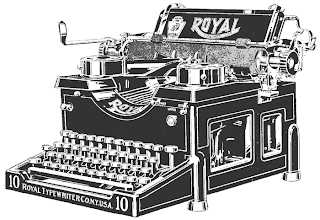As Boise Club 61's Vice President of Education, my job is "providing and maintaining the positive environment and the programs through which members can learn and grow." Usually that is done through helping schedule club meetings and assisting members fulfill the various roles and speaking engagements needed to complete their Competent Leader (CL) and Competent Communicator (CC) manuals.
Other ways I can help Boise Club 61 members include encouraging them to work towards other speaking & leadership goals and to offer useful advice when possible. This blog can be a useful tool in helping do just that.
I think it is important for Toastmasters to avail themselves to pick up specific speaking skills that they will find particularly useful. Sure, we have manuals to give us experience with specific types of speeches, and the evaluations we receive are useful for improving general aspects of our speaking ability and to create our own style. Where we can get more out of the Toastmaster program is when we develop our own goals/skill development outside of the mainstream. Maybe your job requires (or is going to require) that you have a better understanding of PowerPoint and be able to put together effective presentations. The CC manual only has one speech regarding Visual Aids, but that doesn't mean you couldn't take a PowerPoint course at the local college or learning annex. You definitely could strive to use PowerPoint in more of your other manual speeches. You could also speak at other clubs to specifically get additional advice and critiques.
Increasing PowerPoint is just one example. Another, more personal example is how I've written the last six of my CC manual speeches. One area of personal speech growth I perceive was being able to give a short-notice speech. More notice than the impromptu speaking of Table Topics, but less than one would have for a normal manual speech. I can remember being given speaking assignments at work that were for later in the day or first thing in the morning. The time-crunch was a real pressure that I felt I needed to learn to deal with. The best I could do was deliberately start writing my speeches the day I was set to present. Sure, I "cheated" quite a bit in that I new what the topic was and the fact it is hard to not think about an upcoming speech before hand, but this mental pre-preparation couldn't have contributed to more than a sound bite or two.
One thing I learned from this exercise that you might be able to take away from reading this blog post and put to use is the concept of written timing. The specifics of what works for me probably won't work for you, but you can most likely come up with your own standard easily enough. In writing my speeches I use a simple Word document with 1/2" margins and a 20 point font (I've been using Calibri). I learned that a single sheet of paper should run me about two minutes of speaking time. For a five to seven minute speech I want three single-sided sheets of typed up speech.
This single concept of written timing, or more specifically figuring out what my base written timing is means that I have a quick and easy starting place for preparing for any speech I have advanced notice of.



No comments:
Post a Comment